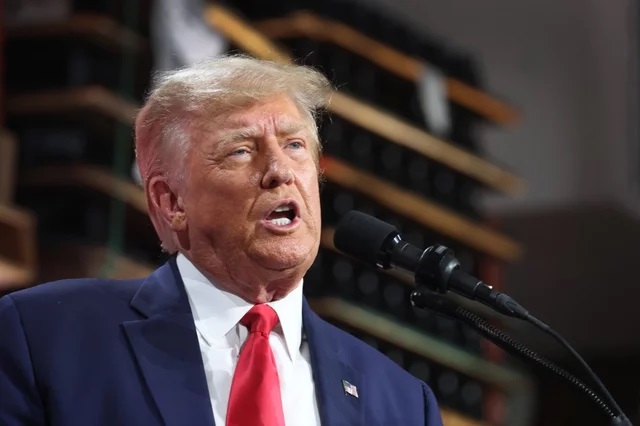MONROVIA – President Donald Trump’s decision to suspend U.S. foreign assistance is causing concern in Liberia, where vital health, education, and community development programs depend on American funding. The move, part of Trump’s broader criticism of U.S. spending on international aid, threatens to disrupt essential services and roll back progress in public health and social stability.
During a speech at the Conservative Political Action Conference, Trump defended the aid freeze, specifically criticizing a $14 million social cohesion project in Liberia. He dismissed the initiative, which aims to promote reconciliation and foster dialogue among Liberia’s diverse ethnic groups, as a misuse of taxpayer dollars. Liberian officials, however, view the project as crucial for maintaining peace and social harmony in a country still recovering from years of civil conflict.
Trump also took aim at a $1.4 million USAID program intended to enhance voter confidence in Liberia’s electoral system, calling it a “waste.” The initiative was designed to promote transparency and public trust in elections as Liberia continues to strengthen its democratic institutions.
The suspension has raised alarms across Liberia, particularly within the health sector. For years, the country has benefited from U.S.-backed initiatives such as the President’s Malaria Initiative (PMI), which provides millions of dollars annually to combat malaria. PMI has historically contributed $14 million each year, with plans to increase that amount to $15 million in 2025. According to a 2020 survey, malaria prevalence in Liberia fell to between 10 and 13 percent, a reduction attributed in large part to U.S. funding.
Health officials warn that without continued support, access to life-saving malaria treatments could be severely affected. Pregnant women and young children, who are among the most vulnerable to the disease, face the greatest risk if supplies run out.
Gbarpolu County Senator Edwin M. Snowe, Liberia’s representative to the ECOWAS Parliament, has voiced serious concerns about the potential fallout from Trump’s aid freeze. Snowe cautioned that cutting off U.S. assistance could leave health facilities without critical supplies, jeopardizing the lives of those dependent on U.S.-funded programs. He warned that the suspension not only threatens public health but also risks reversing years of progress against malaria and other diseases.
Beyond health care, the freeze is also impacting long-standing educational and community development initiatives. USAID has funded numerous programs in Liberia, including those focused on peacebuilding and social cohesion. Civil society organizations, such as the Starks Foundation, a key player in malaria prevention, fear that these programs will collapse without U.S. financial support. They argue that years of development gains could be erased, leaving communities without essential resources.
Liberian officials and advocacy groups insist that continued U.S. assistance is essential for sustaining peace and strengthening democratic governance. They warn that the aid suspension could destabilize ongoing reconstruction efforts and undermine the fragile progress made since the end of the country’s brutal civil wars.







